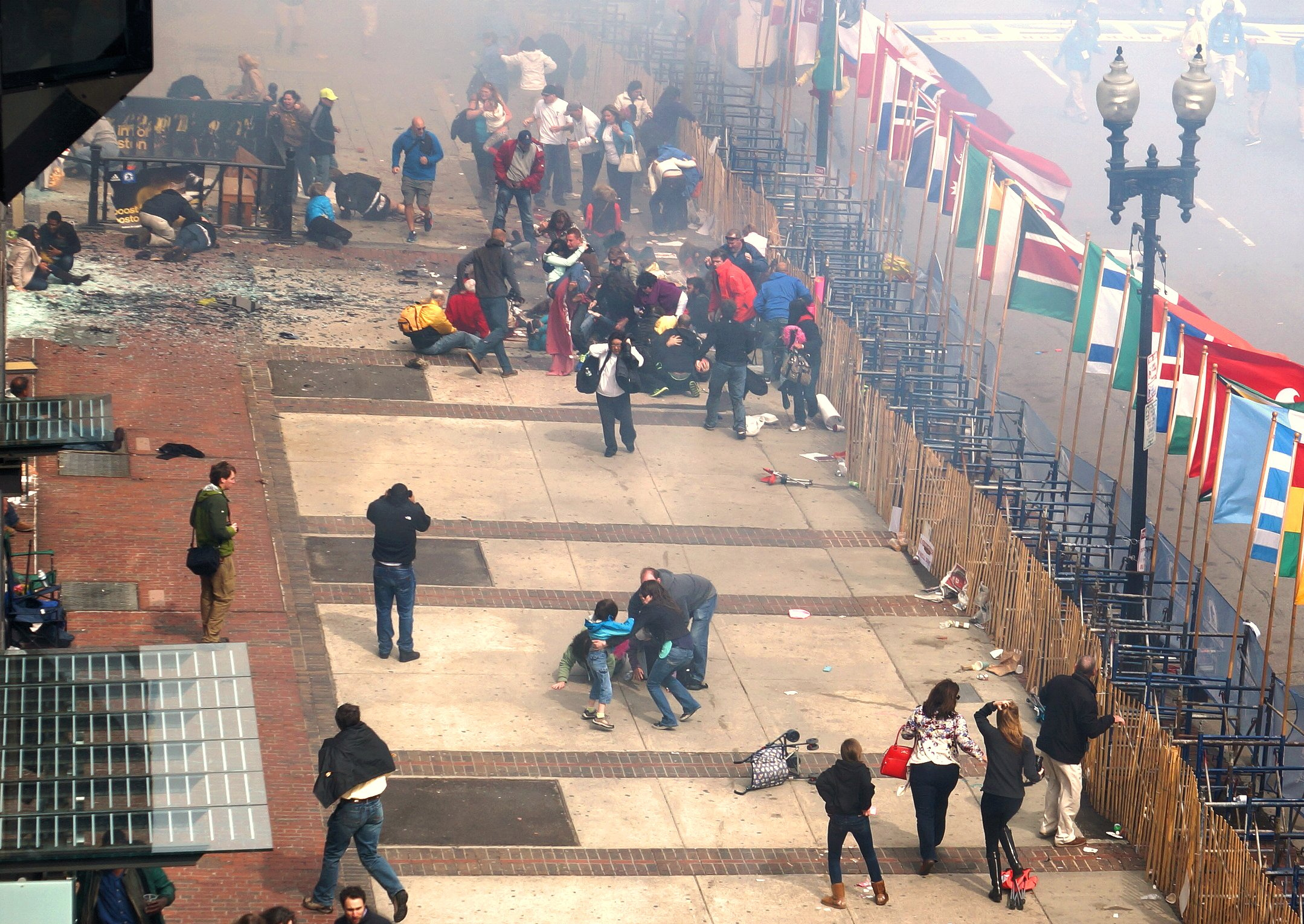Boston Marathon bombing
 The Boston Marathon bombing, sometimes referred to as simply the Boston bombing, was a domestic terrorist attack that took place during the annual Boston Marathon on April 15, 2013. Brothers Tamerlan and Dzhokhar Tsarnaev planted two homemade pressure cooker bombs that detonated near the finish line of the race 14 seconds and apart. Three people were killed and hundreds injured, including 17 who lost limbs.
The Boston Marathon bombing, sometimes referred to as simply the Boston bombing, was a domestic terrorist attack that took place during the annual Boston Marathon on April 15, 2013. Brothers Tamerlan and Dzhokhar Tsarnaev planted two homemade pressure cooker bombs that detonated near the finish line of the race 14 seconds and apart. Three people were killed and hundreds injured, including 17 who lost limbs.On April 18, 2013, the Federal Bureau of Investigation (FBI) released images of two suspects in the bombing. The two suspects were later identified as the Tsarnaev brothers. Later on the evening of April 18, the Tsarnaev brothers killed an MIT policeman (Sean Collier) and proceeded to commit a carjacking. They engaged in a shootout with police in nearby Watertown during which two officers were severely injured (one of the injured officers, Dennis Simmonds, died a year later). Tamerlan was shot several times, and his brother Dzhokhar ran him over while escaping in the stolen car. Tamerlan died soon thereafter.
An unprecedented search for Dzhokhar Tsarnaev ensued, with thousands of law enforcement officers searching a 20-block area of Watertown. Residents of Watertown and surrounding communities were asked to stay indoors, and the transportation system and most businesses and public places closed. After a Watertown resident discovered Dzhokhar hiding in a boat in his backyard, Tsarnaev was shot and wounded by police before being taken into custody on the evening of April 19.
During questioning, Dzhokhar said that he and his brother were motivated by the wars in Iraq and Afghanistan, that they were self-radicalized and unconnected to any outside terrorist groups, and that he was following his brother's lead. He said they learned to build explosive devices from the online magazine of al-Qaeda in the Arabian Peninsula. He also said they had intended to travel to New York City to bomb Times Square. He was convicted of 30 charges, including use of a weapon of mass destruction and malicious destruction of property resulting in death.
Two months later, he was sentenced to death, but the sentence was vacated by the United States Court of Appeals for the First Circuit. A writ of certiorari was granted by the Supreme Court of the United States, which considered the questions of whether the lower court erred in vacating the death sentence. After hearing arguments as ''United States v. Tsarnaev'', the Court upheld the death penalty, reversing the First Circuit Court's decision. Provided by Wikipedia
-
1by Furong Xu, Stephanie Marchand, Celeste Corcoran, Heather DiBiasio, Rachel Clough, Christopher S. Dyer, Jennifer Nobles, Jade White, Mary L. Greaney, Geoffrey W. GreeneGet full text
Published 2017-01-01
Article
